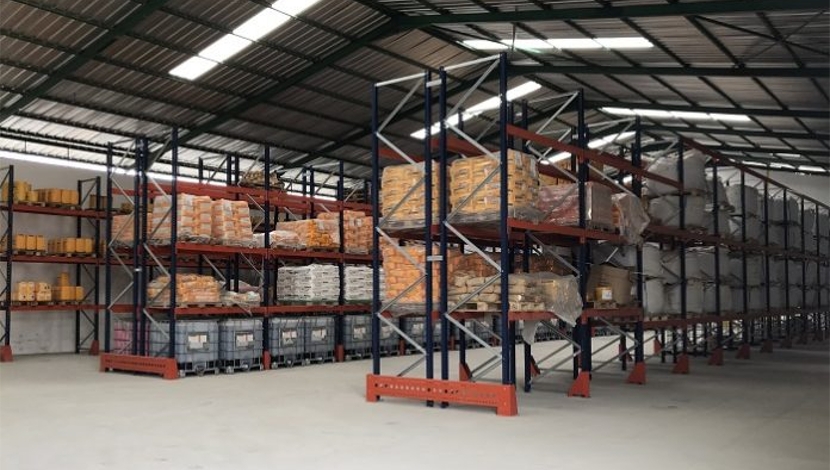
After two terms of office, the inspirational Chairperson of Lafarge South Africa, Nonkqubela Mazwai, has stepped down and handed over the reins to Thandi Orleyn, previously a non-executive director of Lafarge Mining South Africa and Lafarge Industries South Africa. Mazwai was asked to describe the Lafarge of today compared with the company whose board she joined on 15 February 2007, and her leadership contribution to the transformation.
“I am passionate about people and people are a company,” says Mazwai. “Joining Lafarge South Africa in 2007 was a wonderful opportunity to change perceptions regarding transformation and contribute to making a difference.” The first challenge was dealing with the reality of the diversity in the company. Getting the diverse cultures to work better together and communicate more effectively led to Mazwai heading a senior-level transformation committee, that promoted the real benefits of diversity and fostered its introduction on merit at all levels of the company.
She also addressed the key issue of gender equity at senior management levels. “Interestingly, during a Women’s Day celebration last year at Lafarge, the French Ambassador to South Africa said companies in Europe still have similar problems to ourselves with achieving equitable representation of women in senior positions,” adds Mazwai.
Key role
For her part, Mazwai and her fellow women directors made it clear that they were not on the board merely in a token affirmative action role. “We were business partners and had an important part to play,” asserts Mazwai. “One key contribution was to align the company more closely with the Government in order to achieve high levels of compliance with the laws of the land and, in so doing, attain security of tenure and the social licence for Lafarge to operate in South Africa.”
South Africans to the fore
Development of a local talent pool was an identified priority as South Africa was short of mature executive managers with overseas experience. “We brought South Africans onto the board, nurtured them and trained them and arranged for international exposure through the Lafarge Group’s global operations,” says Mazwai. “It is immensely satisfying to see South Africans on the local company boards, others returning from secondments in foreign countries to take up senior management positions, as well as South African women now travelling the world as Lafarge Vice-Presidents.
Fostering community leadership
For the longer term, it makes sound business sense to invest in skills development and the education of our youth who will be future customers, employees and leaders of businesses such as Lafarge. During her tenure, Mazwai facilitated significant and measurable investment in education and community development around the Lafarge operating sites. Relationships with many such communities had to be improved and a new strategy was required. “Success comes down to creating an environment that is conducive to success,” vows Mazwai.
Difficult business environment
Despite coinciding with one of the worst recessions the world has seen and South Africa’s building materials industry being a difficult business environment, Lafarge South Africa displayed praiseworthy resilience and delivered good results under Mazwai’s chairmanship.
Social investment put on a business footing
Underlying Mazwai’s focus on people is a pragmatic businesswoman. “We had built our own successful company (Motjoli Resources) and were acutely aware that the best of intentions for transformation and community upliftment have to be funded and sustained by a solid successful business.” Social investment projects have to be treated as any well-run business project with budgets, targets and timelines. There was also a new and important emphasis on auditable results, making it clear to beneficiaries the meaning of accountability and the fact that funding could not be open-ended.
Integrated country structure
One of the fundamental changes initiated by Lafarge has been the restructuring of the Group on a country basis. “Implementation of such a fundamental change to an organisation has been both challenging and fascinating,” comments Mazwai. Two years down the line, the Country structure is increasingly producing efficiencies and generating extra business from its more customer focused approach under the leadership of a Country CEO, Mr Thierry Legrand. “There is now more pride in being a unified South African entity that has responsibility for and is accountable for its destiny,” she says.
The new Chair
“With the building blocks in place for a successful future for Lafarge in South Africa, I am delighted to be handing over to Thandi Orleyn. She is a warm, approachable person and a high achiever, who is already familiar with the company’s ambitions,” adds Mazwai. “For my part, I am passionate about the future of the mining industry in this country and continue to serve as deputy chairman of the ministerial advisory board, while deciding what new challenges to undertake.”
Additional information is available on the website at www.lafarge.co.za or from Charlene Lamb on Tel: +27(0)11 657 0000





